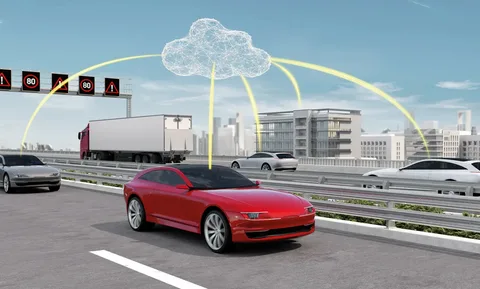How OTA Technology Is Transforming Vehicle Connectivity in the US

Introduction
The US automotive over-the-air (OTA) updates market is revolutionizing how vehicles are maintained, upgraded, and secured. OTA technology enables manufacturers to deliver software updates, performance improvements, and new features directly to vehicles via wireless connectivity — eliminating the need for physical service visits. This innovation is reshaping the automotive landscape, enhancing user experience while reducing maintenance costs and downtime. As connected, electric, and autonomous vehicles become mainstream, OTA updates are emerging as a critical component in ensuring system reliability, cybersecurity, and continuous improvement. The United States, a hub for automotive technology and connectivity, stands at the forefront of this digital evolution.
Market Drivers
The primary driver behind the rapid growth of the OTA updates market in the US is the increasing adoption of connected and electric vehicles. Automakers like Tesla, Ford, and General Motors have pioneered OTA technology to remotely enhance vehicle functionality, fix software bugs, and introduce new features post-purchase. The surge in vehicle digitization and the integration of advanced infotainment and ADAS (Advanced Driver Assistance Systems) have further amplified the demand for remote software management. Rising consumer expectations for seamless, smartphone-like update experiences are compelling automakers to implement robust OTA frameworks. Additionally, regulatory focus on vehicle cybersecurity and performance optimization is reinforcing market adoption.
Market Challenges
Despite its transformative potential, the OTA updates market faces challenges related to cybersecurity, data management, and regulatory compliance. Remote connectivity increases exposure to hacking and data breaches, making security encryption and authentication crucial. The complex architecture of vehicle electronic control units (ECUs) often makes synchronization across systems difficult. Another key challenge is consumer trust — ensuring drivers that updates won’t negatively impact vehicle performance or data privacy. Moreover, implementing large-scale OTA infrastructure requires significant investment in cloud computing, testing frameworks, and robust communication networks, which can be prohibitive for smaller manufacturers and aftermarket service providers.
Market Opportunities
The US market offers immense opportunities for innovation in cloud-based platforms, software-defined vehicles, and predictive maintenance. Automakers are increasingly developing vehicles with centralized electronic architectures that simplify OTA deployment. Integration of AI and machine learning allows predictive updates, automatically identifying potential faults before they occur. The expansion of 5G connectivity provides faster, more reliable data transfer for real-time updates and diagnostics. Additionally, the rise of subscription-based automotive services — such as on-demand feature activation and performance upgrades — presents a new revenue model for OEMs. Collaborations between automotive and tech giants are further unlocking cross-industry innovation in software and data security.
Regional Insights
The United States leads globally in OTA technology adoption, supported by strong automotive innovation ecosystems and tech-driven infrastructure. California and Texas are at the center of this growth, hosting leading EV manufacturers, software firms, and cloud service providers. Michigan’s automotive manufacturing base is also rapidly embracing OTA integration, with OEMs and Tier-1 suppliers investing in connected vehicle platforms. The Southeast region, particularly Georgia and Tennessee, has seen increasing interest from emerging automakers and startups focusing on OTA-enabled mobility. The country’s robust telecommunications network and widespread 4G/5G coverage further strengthen its dominance in the global OTA landscape.
Future Outlook
The future of the US automotive OTA updates market lies in software-defined vehicles and cloud-native architectures. As vehicles become more digital and autonomous, OTA capabilities will extend beyond infotainment to include powertrain, battery management, and safety systems. Predictive and AI-driven updates will enable continuous performance optimization, reducing recalls and manual servicing. Manufacturers will focus on enhancing cybersecurity frameworks to ensure safe and verified update delivery. With government regulations evolving to support data protection and vehicle connectivity, the OTA ecosystem will mature into a standardized, secure, and scalable platform, setting benchmarks for global automotive innovation.
Conclusion
The US automotive over-the-air updates market is redefining vehicle ownership and maintenance in the digital age. By bridging technology and mobility, OTA systems empower automakers to continuously enhance performance, safety, and user experience. Despite challenges in cybersecurity and cost, ongoing technological advancements and strategic collaborations are accelerating adoption across all vehicle categories. As the industry transitions to connected, electric, and autonomous vehicles, OTA updates will remain a cornerstone of automotive evolution, ensuring vehicles are always optimized, up-to-date, and future-ready.
- Art
- Crafts
- Dance
- Wellness
- Movie & Television
- Adult Entertainment
- Fitness
- Food
- Giochi
- Gardening
- Health
- Home
- Literature
- Music
- Business & Finance
- Religion
- Shopping
- Sports
- Theater
- Drinks
- Altre informazioni



